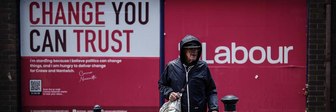British and American capitalism used to be solidly paired together and contrasted against the European version: it was the Anglo-American model (lower tax, less regulation, more energetically competitive) versus the Social-Democratic model (cooperative and unthreatening).
In the last few decades, within the embrace of the EU and its regulatory instincts, British business has evolved into something perhaps more socialised and humane – though some would also describe it as too bureaucratised, too safe, not dynamic enough. The movement hasn’t all been one-way; notably Germany has edged a little in our direction.
A deep financial crisis such as the one in which we’re still stuck is often the catalyst for a significant change in attitudes. Are we now witnessing a decisive shift against unequal wealth? We’ve seen near-violent reaction towards people who have received hefty bonuses while the majority of the nation felt it was suffering, with politicians on all sides rushing in to fan the flames of outrage. We appear to be in an anti-business mood, even though we’re also desperate for economic growth. Are we now ready to turn our backs decisively on American capitalism in preference for a softer EU variety?
There’s good news for campaigners: the issue is unsettled and the public is open for influence. As part of our polling for Thursday’s YouGov-Cambridge Symposium on ‘Public opinion, economic governance and the future of Europe’, we asked about attitudes to regulation, pay, and bonuses. We tried to locate the public preference on a spectrum from a highly regulated to a more self-determined course for companies, and found little consensus. Only on one issue did we get majority agreement (and then only narrowly, 53%): that bonuses should be more tightly controlled. But 32% want companies to ‘act independently’ to do what is ‘best for business’ against 30% who said there should be tighter regulations to ensure they ‘take account of their wider impact’, with 15% on a middle position; and nearly a quarter saying ‘don’t know’.
When polls don’t settle on a clearly preferred direction, it means the game is still up for grabs. It’s not often we find a truly important issue on which party thinkers and persuaders can still demonstrate real leadership – but on the future relationship between business and society, it is far too soon for politicians to try to merely catch the mood of the public: they can still help shape it.









